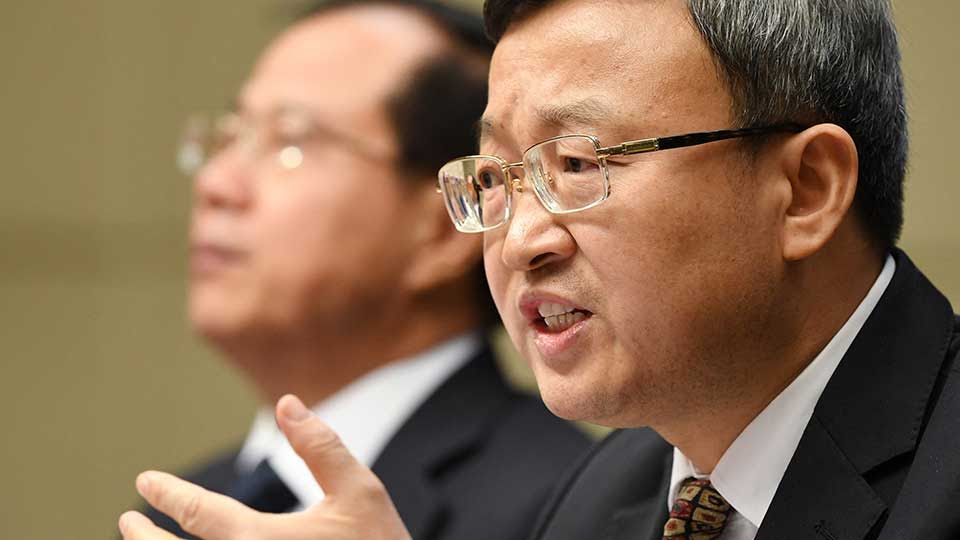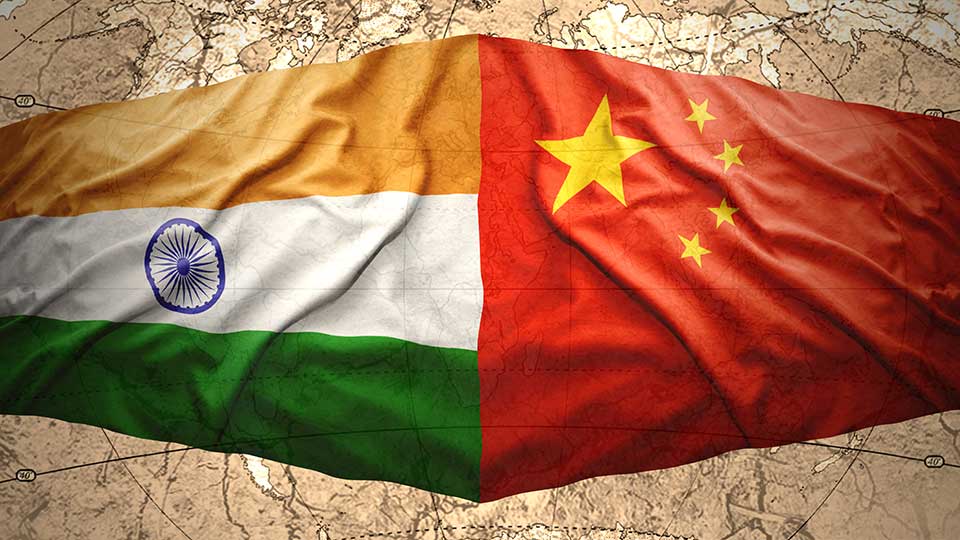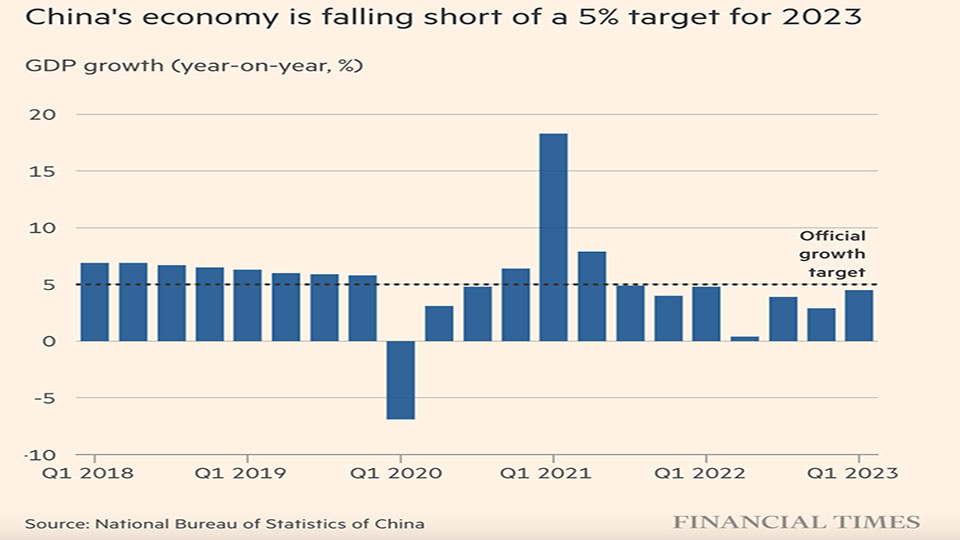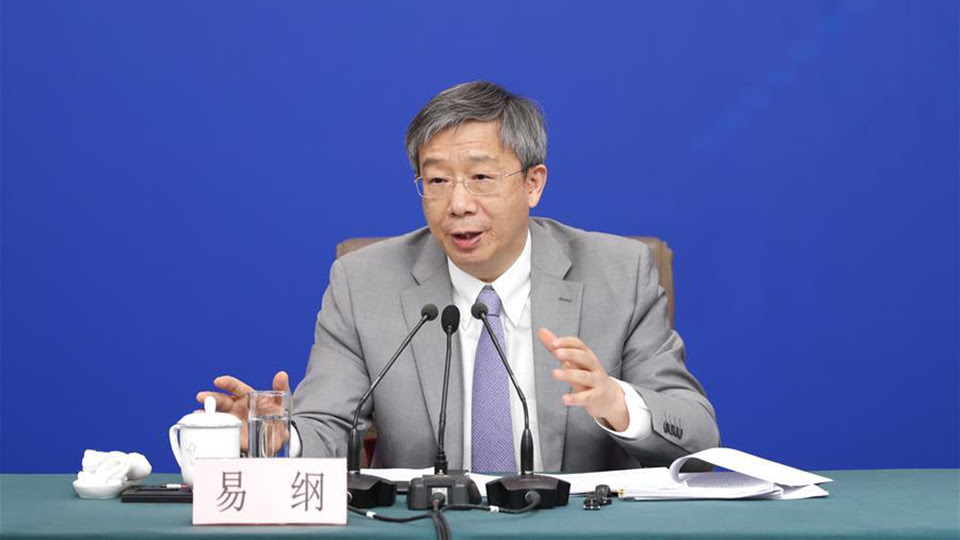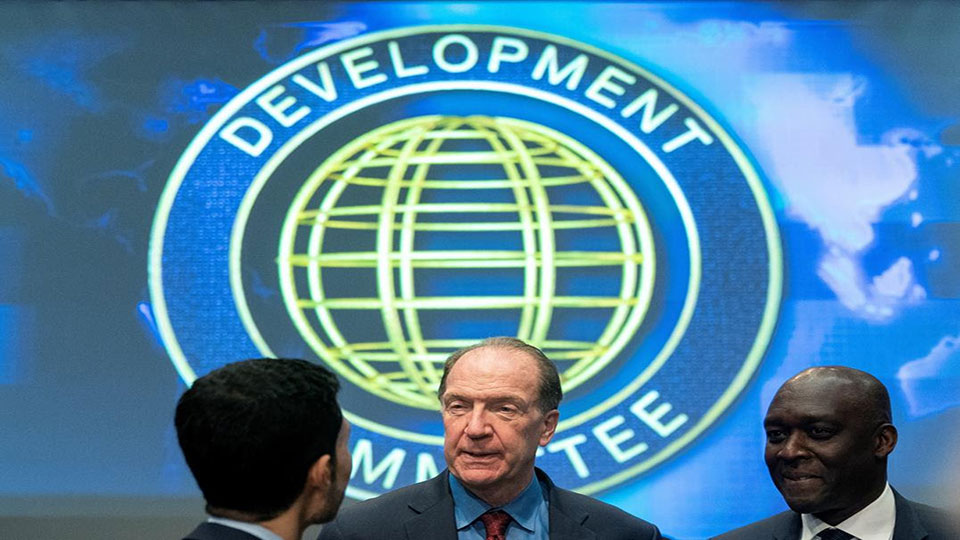Live Feed
The News Feed is curated by CGSP’s editors in Asia and Africa.
More Evidence of China’s Diminishing Appetite for African Oil
It wasn't that long ago when China sourced a third of its imported oil from three African suppliers that included Angola. Today that figure is down to just 10% and appears to be steadily declining as Chinese buyers shift to sourcing crude from Russia, Persian Gulf countries and Brazil among others. (S&P GLOBAL)
Awards for Online Influencers From Global South Countries Who “Tell Good China Stories”
Chinese propaganda authorities recognized seven online content influencers from various countries around the world, including Cameroon and Iran for their contributions to "presenting a true, panoramic view of China."
The ceremony acknowledged the increasingly important role that non-Chinese online influencers, some with large audiences, play in disseminating pro-Chinese messaging in the media space and challenging Western narratives about China's role in the world.
While it's often assumed by critics that these pro-Chinese online influencers are paid by the CPC or the Chinese government, there isn't much evidence to support that assertion. Instead, these influencers are able to build very large audiences on YouTube, TikTok and other platforms that they can monetize by talking mostly to already-converted loyal followers.
WHY IS THIS IMPORTANT? Whereas Xinhua, Global Times and other Chinese official media outlets often lack credibility in targeting Beijing's rivals abroad, foreign influencers, including many from the U.S., Canada, New Zealand and Europe, target Western media outlets and individuals, they believe are hostile to China.
SUGGESTED READING:
- The New York Times: How Beijing Influences the Influencers by Paul Mozur, Raymond Zhong, Aaron Krolik, Aliza Aufrichtig and Nailah Morgan
- The Associated Press: How China uses influencers to build a propaganda network by Amanda Seitz, Eric Tucker, and Mike Catalini
WEEK IN REVIEW: Chinese and Indian Oil Buyers Ignoring West’s Price Cap on Russian Crude
Zambia’s Creditors to Reconvene in May, Amid Growing Global Debt Concern
Bloomberg reports that Zambia’s official creditor committee, which is co-led by China, has reportedly made progress in meetings this week, which will lead to them reconvening for a follow-up session next month.
The next meeting could see them signing a memorandum of understanding, a crucial step towards unlocking a $188 million support package from the International Monetary Fund.
The news comes as global concern about a creeping Global South debt emergency mounts. Several prominent publications, including Bloomberg and the New York Times, have published op-eds calling for the reconfiguration of the global development financing architecture to deal with the crisis.
China’s Newest Talking Point on Debt: The U.S. Dollar is to Blame
As China faces increasing criticism around perceptions that it is holding up debt relief processes, its state media seems to be trying out new talking points in its messaging on the issue to Global South audiences, as seen in a recent article in the state-owned tabloid Global Times:
The US' irresponsible monetary policy is the root of African debt problems. Relying on dollar hegemony, the US has implemented three rounds of quantitative easing, cut interest rates to near zero, and flooded Africa and emerging markets with low-interest dollars.
It then arbitrarily and aggressively raised interest rates, boosted the U.S. dollar exchange rate, attracted the return of dollars, as a result, African countries have to face liquidity shortages, broken funding chains, currency depreciation, skyrocketing debt repayment costs denominated in dollars, a surge in sovereign debt, and exacerbated debt problems. The unfair financial system led by the US is the root of Africa's debt problems.
WHY IS THIS IMPORTANT? The GT article is chiming into a growing conversation about dethroning the U.S. dollar as the dominant currency of global trade. While experts argue that such a shift is decades away, recent comments by Brazil's President Lula and other Global South leaders have revealed that the sentiment is becoming a popular talking point in the China-Global South space.
China-Gabon Relations Upgraded
China and Gabon's relationship has been upgraded to a Comprehensive Strategic Cooperative Partnership, the main takeaway from President Ali Bongo Ondimba's state visit to Beijing.
WHY IS THIS IMPORTANT? The elevation of the relationship to a strategic level might worry the United States due to ongoing concerns about growing Chinese strategic interests in West Africa.
Namibia Partners With Chinese Company to Build 50MW Wind Power Plant
Chinese Company Targets Zimbabwe’s Solar Power Generation Amidst Crippling Blackouts
China’s CMOC Reaches Breakthrough Contract Settlement Deal With DRC Over the TFM Cobalt Mine
China’s Offer to Mediate Israel-Palestinian Conflict Lacks Credibility, Say Analysts
What the Israelis Really Want From China (Hint: It Has Nothing to do With the Palestinians)
There's no indication in the Israeli national security community of a strong desire to call on China to help mediate the country's long-running dispute with the Palestinians.
After all, Israel is one of the U.S.'s closest allies and China has been an unconditional supporter of Palestinian causes over the years.
So, when Israeli Foreign Minister Eli Cohen spoke with his Chinese counterpart on Monday, it seems the two may have had very different agendas.
While Qin may want to see if he can snag the next Nobel Peace Prize by helping to broker a settlement between the Israelis and Palestinians, Cohen, on the other hand, seemed far more interested in talking about what China could do to rein in Iran's nuclear weapons program.
After the phone call, Cohen didn't mention China brokering a deal with the Palestinians but did say that he "called on [Qin] to exert his influence on Iran to stop the progress of the nuclear program, which poses a danger to many countries in the Middle East and the world."
WHY IS THIS IMPORTANT? Cohen raised an interesting point here: while the Israelis probably don't want the Chinese to mediate and the Chinese lack any meaningful leverage to compel them to do so, that is not the case when it comes to Iran. Beijing exercises considerable influence in Tehran at the moment. If the Chinese exercise that credibility to broker a freeze of Iran's nuclear weapons program, it could be a significant development.
SUGGESTED READING:
- Al Arabiya News: Israel urges China to use its ‘influence’ to stop Iran’s nuclear program by Yaghoub Fazeli
- Reuters: China's Xi calls for early resolution of Iran nuclear issue
Iran-China Trade Topped $15 Billion Last Year: Report
Two-way trade between China and Iran increased by 7% last year to $15.8 billion, according to new data by Chinese customs authorities.
Iranian exports to China accounted for $6.35 billion, while imports from China totaled $9.4 billion.
But these figures may be misleading as they probably don't include the sizable quantity of Iranian oil shipped to China's independent refineries via the UAE, Oman and Malaysia and other countries to circumvent U.S. sanctions.
Chinese Embassy in Nigeria Refutes Times (UK) Story That Claimed “Beijing is Indirectly Funding Terrorism”
South African, Chinese Communist Party Officials Meet in Beijing
The head of South Africa's Communist Party, Solly Afrika Mapaila, met the director of the CPC's international liaison department, Liu Jianchao, on Tuesday in Beijing.
From the gist of the read-out of the meeting, it does not appear that the meeting was anything more than a meet and greet. Nonetheless, it highlights how Chinese diplomacy in Africa and elsewhere often operates on two parallel tracks: one driven by the state and the other by Party. (STRAIGHT TO AFRICA -- in Chinese)
In the U.S.-China Duel, the Philippines Has Chosen a Side, Says Xiamen University Southeast Asia Scholar
When Ferdinand Marcos, Jr. was elected president of the Philippines last year, there was a lot of hope in Beijing that he would reset ties with China after six turbulent years of Rodrigo Duterte's unpredictable foreign policy.
Now, less than a year later, it's becoming increasingly apparent that a reset is indeed happening, just not the way that China had anticipated.
Xiamen University Southeast Asia professor Wu Shicun acknowledged as much in a sober column published on Tuesday in the usually chest-thumping CPC-run nationalist tabloid Global Times.
Wu recently returned from a visit to Manila, where he attended a conference on Sino-Philippines ties and noted how he "felt a change" brought on by Manila's rapidly expanding military ties with the United States.
In his column, he reflected on how ties between the two countries are now entering a new, more dangerous phase:
- MILITARIZATION: The unprecedented U.S.-Philippines security cooperation is making the Philippines more involved in the process of "militarization of the South China Sea."
- PARTISANSHIP: The Philippine government's position that "it will not choose sides between China and the United States, and external forces cannot interfere in the South China Sea issue" is now questionable."
- CHALLENGES: "The Philippines' attempt to solidify its long-term occupation of the Second Thomas Shoal and trigger China's possible countermeasures will bring new challenges to China-Philippines relations."
Read the entire column on the Global Times website (in Chinese).
Backgrounder: China-Australia Iron Ore Fight
China’s Economy Rebounds on Back of Increased Trade
Chinese Embassy in Vietnam Blasts Blinken For “Sowing Discord” in Southeast Asia
The Chinese Ministry of Foreign Affairs did not comment over the weekend about U.S. Secretary of State Antony Blinken's visit to Vietnam but will likely do so on Monday at the regular press briefing in Beijing.
The ministry's response will probably sound very similar to a statement published on Saturday by the Chinese embassy in Hanoi that slammed officials from "countries outside of the region" who employ a "Cold War mentality... to sow discord."
That same sentiment was echoed in coverage of the visit on the nationalistic website Observer but surprisingly, the normally combative Communist Party tabloid Global Times published a more sanguine analysis of the visit in a column by the head of the Chinese Association of Southeast Asian Studies, Si Zhentao:
- WESTERN MEDIA NARRATIVES: "If U.S.-Vietnam ties are upgraded in the near future, then the Western media will promote new narratives that this is some kind of "American diplomatic victory" and that "China is more isolated" with the intent to pressure China."
- ECONOMICS & SECURITY: "The United States will use a combination of economics and security to try and win over Vietnam ... and take advantage of its role as a major export market for Vietnamese products. The U.S. will also offer Vietnam more security assistance and offers to boost its international standing (like being invited to attend the G7 meeting). There will be many tricks like this in the future."
- GREAT POWER COMPETITION: "Vietnam's refusal to intervene in major power competition does not mean that it will not use the game of great powers to maximize its own interests ... [in particular] there will be issues like the global industrial value chain and participation in Washington's regional economic initiatives (like IPEF) that are both worthy of attention."
WHY IS THIS IMPORTANT? It's notable that Si included the offshoring of industrial manufacturing to Vietnam among his main concerns about the U.S. in Vietnam, echoing similar anxieties expressed on Friday by China's central bank governor Yi Gang who said the U.S. drive to shift production out of China is "protectionist." Clearly, this is becoming a sensitive topic for Chinese stakeholders.
SUGGESTED READING:
- Global Times: Si Zhentao: Several major trends in Vietnam-US relations deserve attention (in Chinese)
- Observer: Blinken went to Vietnam, secretly looking at China (in Chinese)
China’s Online Supporters Incorrectly Thought They Saw the Vietnamese Dissing the Blinken by Not Displaying a U.S. Flag
China's online supporters, including a number of diplomats and well-known trolls, seemed to think the Vietnamese government was trying to send visiting U.S. Secretary of State Antony Blinken a message when they only featured a Vietnamese flag in the room during a meeting with Prime Minister Phạm Minh Chính.
"Blinken visited Vietnam 🇻🇳, but apparently too suddenly, Vietnam did not come in a hurry to prepare the American flag. Kudos to Vietnam 👍," said one user on Twitter.
Chinese diplomats also propagated the inaccurate meme, apparently unaware that the Vietnamese do not display the national flags of visiting dignitaries in this particular room, as evidenced by these separate meetings with the Prime Minister by Chinese and Russian officials in the same location, both without flags.
China’s Central Bank Chief Signals Beijing Will Cooperate With Other International Creditors on Debt Relief
New Billion-dollar Korean-Chinese EV Battery Plant Deal Likely to Anger the U.S.
South Korea's LG Chem signed a deal with Chinese mining and metal refining giant Zhejiang Huayou Cobalt to build a massive $920 million electric vehicle battery factory in southwest Korea.
While the proposed factory makes a lot of sense for companies like LG that supply Korean automakers with EV batteries, it may provoke an angry response from the United States.
South Korean lawyers are also warning that joint ventures like this with Chinese companies will likely violate the Inflation Reduction Act that aims to remove Chinese companies like Zhejiang Huayou from the supply chain of any products that come into the U.S. market.
Since Korean automakers are among the largest suppliers of vehicles to the U.S., any units that contain batteries from this new factory could be sanctioned.
In light of the fact that Zhejiang Huayou is also a major actor in the Congolese cobalt extraction sector, it's quite likely that a substantial portion of the blue metal used in this new South Korean factory would be sourced from the Chinese company's mines.
WHY IS THIS IMPORTANT?: The deal highlights the challenge facing U.S. policymakers whose political desire to reduce China's dominance in the critical minerals sector is not aligned with the profit-driven motivations of private companies like Ford, Tesla and now LG Chem.
SUGGESTED READING:
- Korea Times: Concerns grow over LG Chem, SK on, POSCO partnering with Chinese firms by Park Jae-hyuk
- Korea JoongAng Daily: LG Chem and Huayou Cobalt to build precursor factory
What’s in Store for Chinese Companies Encouraged to Invest in Equatorial Guinea?
WEEK IN REVIEW: Japanese Foreign Minister Fumio Kishida to Embark on a Four-Nation African Tour Next Month
Japanese Foreign Minister Fumio Kishida will embark on a four-nation African tour next month, a trip widely seen as an effort to counter Chinese and Russian influence on the continent. This will be the first visit to Africa by a Japanese leader since 2016. (NIKKEI ASIA)
Secretary of State Antony Blinken is reportedly planning to visit Vietnam this week, according to a visiting U.S. Senator in Hanoi. Washington is hoping to upgrade ties with Hanoi but Vietnamese officials are reportedly anxious the move will upset China. (REUTERS)
The Malaysian foreign ministry issued a strongly worded statement targeted at China that Kuala Lumpur would "unequivocally and firmly" protect its sovereignty in the South China Sea. Saturday's statement was a direct response to Chinese concerns about Malaysian oil exploration in contested waters. (MALAYSIA NOW)
Three of China's largest state-owned telecom companies are developing a $500 million undersea fiber-optic cable that will link Asia, the Mideast and Europe. The plan is to build one of the world's largest and most advanced subsea cable networks that would rival a similar U.S.-backed project. (REUTERS)
The Chinese government has criticized a visit by India’s Home Minister Amit Shah to Arunanchal Pradesh, a sparsely populated Himalayan region on India’s disputed border with China. Shah visited the region to announce a $585 million development scheme targeting 3,000 villages. China said the visit violated its territorial sovereignty. (REUTERS)
Indonesia’s Chief Investment Affairs Minister Luhut Binsar Pandjaitan said Jakarta is negotiating with China to lower the interest rate on a cost overrun on the Chinese-built Jakarta-Bandung high-speed rail project. Meanwhile, PowerChina has announced that it has finished laying tracks along the 142km route, which means that full operation could start soon. (JAKARTA GLOBE)
Pakistani authorities have reportedly arrested a senior anti-Chinese Baloch separatist leader. The movement has targeted Chinese nationals and Belt and Road projects in the region, putting pressure on the bilateral relationship. (NIKKEI ASIA)
The U.S. and the Philippines launched their largest-ever joint military exercises on Tuesday in a move intended to counter China's growing naval presence in the South China Sea. 17,000 soldiers and sailors will take part in the drills over the next 18 days. (INQUIRER.NET)
Chinese Foreign Minister Qin Gang arrived in Uzbekistan on Wednesday to meet with his counterparts from countries neighboring Afghanistan. This is the fourth meeting of the group but this time it has more ugency given the heightened threat from ISIS against Chinese interests in Afghanistan. (XINHUA)
Passenger service is expected to start this week on a Chinese-built railway line between the Laotian capital of Vientiane and the Chinese hub of Kunming. The railway is seen as a key part of the Belt and Road Initiative’s linking of China with Southeast Asia. (XINHUA)
Indian Finance Minister Nirmala Sitharaman said India is using production incentives to displace China from the global supply chain. Speaking at the Peterson Institute for International Economics in Washington DC, she said New Delhi is using targeted support to 13 economic sectors to challenge China’s centrality in mass manufacturing. (WION)
Kenya’s donkey population has plunged from 1.8 million in 2016 to barely one million today, due to unregulated trade driven by Chinese demand for supplements made from donkey skin, says the Association of Donkey Owners of Kenya. The loss of these animals is imposing a massive toll on rural farmers, especially women. (THE STANDARD)
First Signs of Progress on Debt at Spring Meetings, But Much Remains Unclear
The Philippines Walks a Tricky Line Between the Superpowers
Lots of Talk, Little Action: Zambia’s Debt Relief Process Remains Stalled Says Finance Minister
Zambia's Finance Minister Situmbeko Musokotwane said it's urgent that the country's international creditors finalize a debt restructuring deal at once, or else a $188 million IMF emergency financial package could be at risk.
Musokotwane expressed frustration in an interview with Bloomberg TV on Tuesday that his government has met all of the requirements stipulated by the IMF to secure the funds but still won't qualify for the money unless Lusaka's international creditors close a debt restructuring deal.
Zambia is the epicenter of a bitter, years-long dispute among China, the U.S. and international creditors over whether the World Bank should also take write-downs on their loans.
The Finance Minister did acknowledge that after months of delay, there's now more momentum in the negotiations but still no deal:
As of now, we have not had tangible results in the resolution between Zambia and her creditors. The discussions are still ongoing. The level of interaction has intensified in the past few weeks. But as of now, we have not yet had any resolution and we are waiting for that very anxiously.
Musokotwane may get a hand from U.S. Treasury Secretary Janet Yellen, who told reporters on Tuesday that Washington is going to push hard this week for a speedy resolution to Zambia's ongoing debt relief impasse.
WHY IS THIS IMPORTANT? Zambia is widely seen as a critical test case for whether the U.S. and China will actually put aside their differences to reach some kind of consensus on debt relief and to what extent private creditors will take losses on their loans.
SUGGESTED READING AND VIEWING:
- Bloomberg: Zambia Finance Minister on Debt Relief, IMF Funds
- Axios: Why Zambia’s debt restructuring is a critical test for China by Kate Morino
Kenya Now in the Grip of Worsening Debt Crisis, President Rules Out Default
Kenya's public employees are threatening to go on strike unless the government pays their overdue salaries.
Civil servants did not get paid last month due to a financial crisis brought on by the country's ballooning debt that's now fast closing in on the legal limit of 10 trillion shillings or $75 billion.
But despite the prospect of a national strike and even social unrest, the government will not default on its financial obligations to both domestic and international creditors, according to presidential advisor and prominent economist David Ndii.
Why is Kenya's Debt Crisis Accelerating?
- BORROWING BINGE: The government is in such a hole now that it needs to borrow just to stay afloat. In just the past four months, Kenya took on $3.7 billion of additional debt, making it much more difficult now to meet its payment obligations. (THE STANDARD)
- DEBT SERVICING: China is Kenya's largest bilateral creditor and refused to extend debt repayment deferrals last year on the nearly $6 billion of loans mostly used to pay for the construction of the SGR. Most of those are denominated in dollars which also contributes to a forex shortage and a weakening of the shilling that ultimately pushes up the cost of servicing the debt. (@RAMAH_NYANG)
- TRADE DEFICIT: Kenya's trade deficit with China widened last year to $3.62 billion despite efforts by both countries to narrow the gap. While trade deficits are not inherently bad, they can be for highly-indebted countries like Kenya, which have to use their shrinking stock of dollars to buy imports which can devalue the shilling and spark inflation. (BUSINESS DAILY)
WHY IS THIS IMPORTANT? China has repeatedly said that it plays "a constructive role" in helping African countries to manage the worsening debt crises, but in Kenya, the China Exim Bank has steadfastly refused the government's appeals for repayment flexibility.
SUGGESTED READING:
- Business Daily: Kenya’s external debt balloons by Sh344bn on weak shilling by Dominic Omondi
- Business Daily: Kenya-China trade gap grows despite diplomatic charm by Constant Munda
Pirates Seize Chinese-run Oil Tanker in the Gulf of Guinea
Pirates took command of a Chinese-operated oil tanker this week 300 kilometers off the coast of Ivory Coast in the Gulf of Guinea, according to a London-based risk management company.
Details about how many crew are being held captive and how many raiders were involved are unavailable. It's also not clear if the ship was staffed by Chinese nationals.
The incident comes amid heightened fears among Chinese expatriates in West Africa. In Nigeria, the Chinese embassy issued a new security advisory for its citizens and companies operating in Kaduna, Zamfara, Niger, Kogi and Abuja states to take precautions amid a surge of kidnappings.
WHY IS THIS IMPORTANT? The growing insecurity in West Africa will contribute to worsening concerns in other Chinese communities across the continent following the brutal killing of nine Chinese miners in the Central African Republic last month. Chinese embassies in South Africa and DRC have also issued similar security advisories in recent weeks.
SUGGESTED READING:
- South China Morning Post: Chinese in Nigeria urged to strengthen security after latest kidnappings by Cyril Ip
- Associated Press: Risk firm: Pirates board Chinese-run ship in Gulf of Guinea by Sam Mednick
Chinese Analysts Warn New U.S., Philippines Security Plan Will Escalate Tensions in the Pacific
The United States and the Philippines agreed to a new long-term plan that will pave the way for a major increase in U.S. security assistance to the Southeast Asian country over the next five to ten years.
The deal was finalized on Tuesday at the State Department in Washington, D.C., where the top diplomatic and defense officials from both countries met as part of the "2+2 Ministerial Dialogue."
The new agreement is specifically targeted at confronting China's "provocative activities in the South China Sea" that has led to a rapid deterioration of ties between Manila and Beijing in recent months.
The Chinese Foreign Ministry has not commented yet on Tuesday's meeting in Washington, but scholars interviewed by the nationalist CPC-run tabloid Global Times warned that if the U.S. deploys "offensive weapons" to the Philippines, then it would provoke an automatic escalation from China to respond with "its own aircraft carriers and air power to protect its strategic interests" in the region.'
WHY IS THIS IMPORTANT? President Ferdinand Marcos, Jr. came into office last year as something of a wild card on where he would fall on the U.S.-China spectrum, but it appears now that a series of recent maritime incidents between the Chinese Coast Guard and Filipino fishing vessels persuaded him to lean much more heavily on the U.S. for security assistance.
SUGGESTED READING:
- Reuters: US, Philippines agree to complete road map for security assistance for next 5-10 years by Idrees Ali and David Brunnstrom
- Global Times: The United States and the Philippines restart the "2+2" dialogue. Philippine experts: The United States' top priority is not to protect the Philippines, it is promoting war (in Chinese)
Introducing CGSP Intelligence
CGSP Intelligence gives you the information advantage on Chinese activities in the Global South. CGSP Intelligence is launching in Summer 2025, with analysis and a full set of data tools designed for corporate and enterprise leaders.

